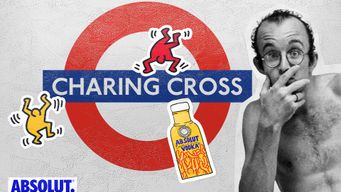France has approved a law that targets influencers and aims at protecting consumers, especially the younger ones.
On June 1, 2023, the French Parliament adopted a bipartisan Bill to regulate social media influencers' activities in a bid to curb the promotion of dangerous products and trends.
The law, which will be enacted soon (Influenceurs sur les réseaux sociaux - Sénat (senat.fr)), implements a new framework composed of two pillars.
1. Influencers (key aspects):
- The law provides for a definition of influencers: "individuals or legal entities who, for a fee, mobilize their notoriety with their audience" to promote goods and services online. The law reiterates that influencers must comply with advertising law.
- The law implements a definition of influencers’ agencies: “the activity of an influencer's agent consists in representing, or putting in contact, for a fee, individuals or legal entity, acting as influencers, with individuals or legal entities and, where applicable, their agents, for the purpose of promoting, for consideration, goods, services or any cause whatsoever”.
- The obligation to set forth the undertakings of the parties (brands, agencies, and influencers) in a written agreement is made clear by this law which lists the information to be contained in such an agreement, e.g., French law must govern online influence activity aimed in particular at an audience based in France.
- Underage influencers will benefit from the protective legal status of underage models.
A “Guidance” document, which contains a list of the rules applicable to influencers, as well as information pertaining to their rights, has been published earlier in June by the French Ministry of Economy and Finance (Guide_de_bonne_conduite_des_Influenceurs_0623.pdf).
2 Consumers (summary):
- Thanks to this law, the French Consumer and Competition agency (Direction Générale de la Concurrence, de la Consommation et de la Repression des Fraudes, DGCCRF) will set up a team of agents dedicated to the monitoring of the “influence” activity.
- The law imposes transparency for photos, retouched videos and representations of appearance or face created thanks to artificial intelligence.
- It prohibits the promotion of certain practices - such as cosmetic surgery and therapeutic abstention - and prohibits or heavily regulates the promotion of several medical devices. It also bans the promotion of products containing nicotine or certain financial products and services. It tackles sports betting and gambling: influencers will no longer be able to promote subscriptions to sports forecasts, and the promotion of money games will be limited to platforms that technically restrict access to minors.
- The law also includes measures to hold platforms accountable.
- While many successful influencers operate from abroad, such as in Dubai, the law aims to require those operating from outside the European Union, Switzerland, or the European Economic Area to appoint a legal representative in France and to take out civil liability insurance within the EU.
Thus, this new framework has been drawn up to ensure the development of this economic sector, while protecting consumers. France is thus reaffirming its ambition to make the digital age an area of trust and innovation for citizens and businesses alike.
This is precisely one of the missions of the Autorité de Régulation Professionnelle de la Publicité (ARPP), the French SRO, particularly with regard to influencers.
Indeed, in 2021, the ARPP set up a “Responsible Influencer Certificate”, awarded by this self-regulatory authority, if the influencer passes the exam at the end of an e-learning session (e-learning module easily accessible through a user-friendly online platform). The main goal of this Certificate is to provide influencers with key rules related to advertising on social media.
TikTok, for instance, introduced a dedicated training module for the session and certain brands have made the Certificate a mandatory requirement for collaboration.
On May 30, 2023, the ARPP has been awarded, by the European Advertising Standard Alliance (EASA), the Bronze Award for this initiative : Responsible Influencer Certificate – winner of the Bronze award | EASA – European Advertising Standards Alliance (easa-alliance.org)


/Passle/5ca769f7abdfe80aa08edc04/SearchServiceImages/2025-12-11-21-58-26-997-693b3e82641ff44fb22be187.jpg)
/Passle/5ca769f7abdfe80aa08edc04/SearchServiceImages/2025-12-09-16-09-55-496-693849d32b43241fe162ee63.jpg)
/Passle/5ca769f7abdfe80aa08edc04/SearchServiceImages/2025-12-09-16-00-22-911-693847962b43241fe162e049.jpg)
